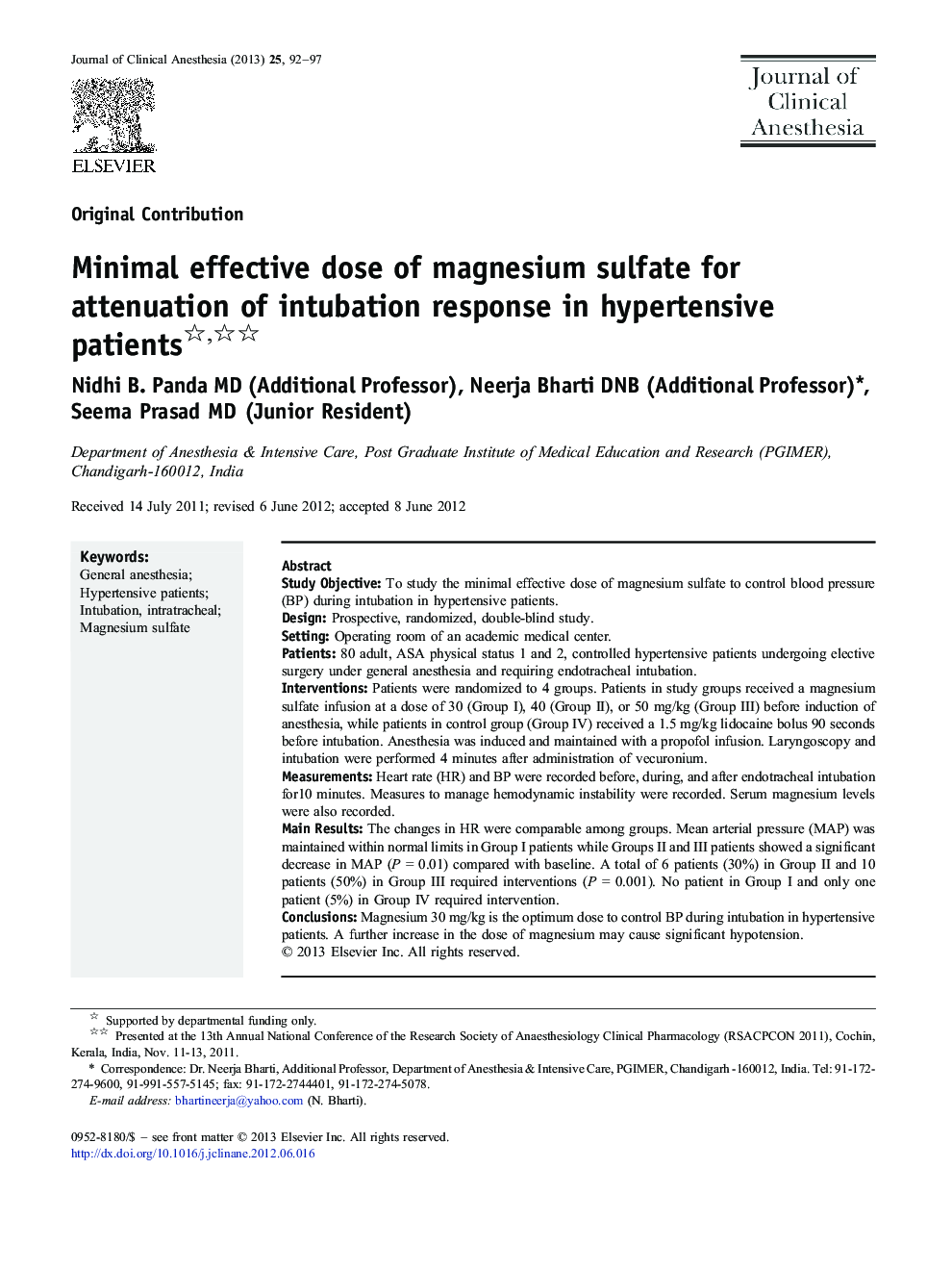| Article ID | Journal | Published Year | Pages | File Type |
|---|---|---|---|---|
| 2763039 | Journal of Clinical Anesthesia | 2013 | 6 Pages |
Study ObjectiveTo study the minimal effective dose of magnesium sulfate to control blood pressure (BP) during intubation in hypertensive patients.DesignProspective, randomized, double-blind study.SettingOperating room of an academic medical center.Patients80 adult, ASA physical status 1 and 2, controlled hypertensive patients undergoing elective surgery under general anesthesia and requiring endotracheal intubation.InterventionsPatients were randomized to 4 groups. Patients in study groups received a magnesium sulfate infusion at a dose of 30 (Group I), 40 (Group II), or 50 mg/kg (Group III) before induction of anesthesia, while patients in control group (Group IV) received a 1.5 mg/kg lidocaine bolus 90 seconds before intubation. Anesthesia was induced and maintained with a propofol infusion. Laryngoscopy and intubation were performed 4 minutes after administration of vecuronium.MeasurementsHeart rate (HR) and BP were recorded before, during, and after endotracheal intubation for10 minutes. Measures to manage hemodynamic instability were recorded. Serum magnesium levels were also recorded.Main ResultsThe changes in HR were comparable among groups. Mean arterial pressure (MAP) was maintained within normal limits in Group I patients while Groups II and III patients showed a significant decrease in MAP (P = 0.01) compared with baseline. A total of 6 patients (30%) in Group II and 10 patients (50%) in Group III required interventions (P = 0.001). No patient in Group I and only one patient (5%) in Group IV required intervention.ConclusionsMagnesium 30 mg/kg is the optimum dose to control BP during intubation in hypertensive patients. A further increase in the dose of magnesium may cause significant hypotension.
